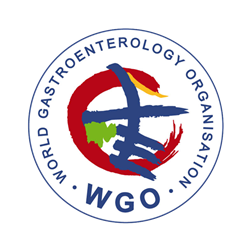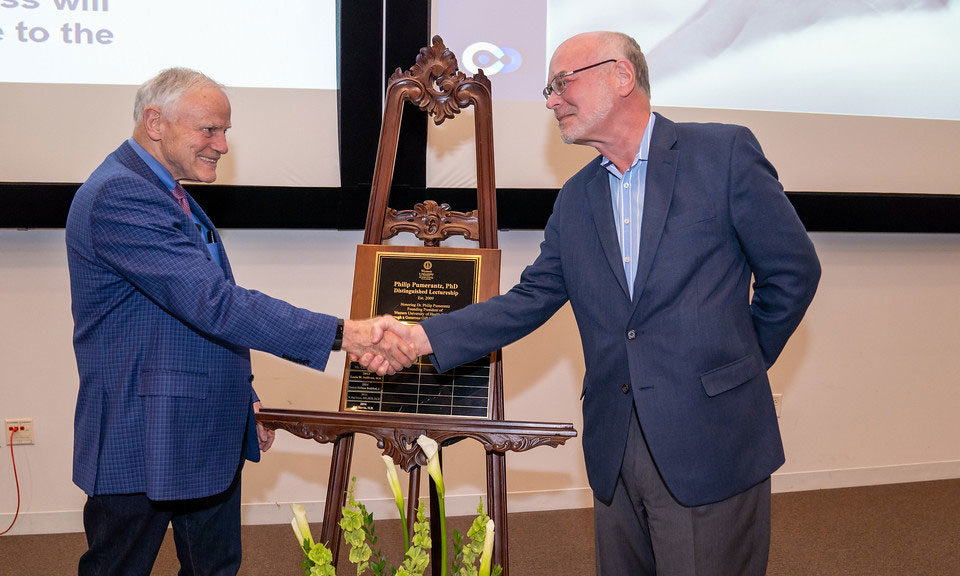
During my presidency, I have three main objectives: to attract more young physicians as well as encourage females to serve on WGO committees to have more impact in the global community, and increase efforts toward growing our membership in Africa as well as in all parts of the world.
MILWAUKEE (PRWEB)
October 18, 2019
Professor Naima Lahbabi-Amrani was elected as the 2019-2021 President of the World Gastroenterology Organisation (WGO) by the General Assembly during the World Congress of Gastroenterology in Istanbul, Turkey on 23 September 2019. Professor Lahbabi-Amrani is the first woman to hold this position and also the first President from Africa and Middle East.
Professor Lahbabi-Amrani is a Professor of Medicine at the University Mohammed V and also faculty of medicine and pharmacy in Rabat, Morocco. She is also the Director of the WGO Rabat Training Center, one of WGO’s oldest Centers.
Professor Lahbabi-Amrani is an Honorary President of the Pan-Arab Association of Gastroenterology. She is a Governing Council member of AMAGE (African-Middle Eastern Association of Gastroenterology), a Governing Council member of the Pan-Arab Society of Gastroenterology, and a Governing Council member of the Moroccan Society of Gastroenterology. She is a Founding Member of the AAFFCHGE, called since November 2017, the SAHGE (Société Africaine d’Hépato-Gastro-entérologie et d’Endoscopie digestive). She is member of numerous gastroenterology societies and associations.
Professor Lahbabi-Amrani serves as hepatologist and gastroenterologist. She is graduated from Paris VII Medical University. She holds a master’s degree in Human Biology with a focus on Physiology and Functional Digestive Exploration from Claude Bernard University-Lyon, France.
She has served as the Head of the Hepato-Gastroenterology Department at CHU Ibn Sina-Rabat; the Associate Dean of Research and cooperation at the Rabat Faculty of Medicine and Pharmacy, President of the Moroccan Society of Gastroenterology (SMMAD), and President of the Pan-Arab Association of Gastroenterology. She was an Executive Member of ASNEMGE.
Prof. Lahbabi-Amrani has served on both the Governing Council and Executive Committee as Scientific Program Committee Chair (2009-2015); Secretary General (2015-2017); WGOF Chair (2017-2019) and President-elect (2017-2019). She has additionally, served on several WGO committees as Member of the Training Centers Committee (2001-present); Member of the Train the Trainers Committee (2013-2019); Member of the Finance Committee (2015-2019); Member of the Nominations Committee (2009-2013); and Member of the WDHD Committee (2012 and 2018-Present).
She is an honorary member for rendered services to AAFFCHGE (Association d’Afrique Francophone de Formation Continue en Hépato-Gastroentérologie).
She has received royal decoration from the throne to the order of the Knight.
“My aim is to follow the lead of those who have served in this position. I hope to continue their efforts. This can allow us to benefit from their experience and wisdom. During my presidency, I have three main objectives: to attract more young physicians as well as encourage females to serve on WGO committees to have more impact in the global community, and increase efforts toward growing our membership in Africa as well as in all parts of the world. This will help to raise our position as the global guardian of digestive health. However, this cannot be done without the commitment, support and confidence of all of you (the new Governing Council, our member societies and regional affiliate associations). We are a Big Family with only One Voice to reflect the mission of WGO,” said Prof. Lahbabi-Amrani.
ABOUT THE NEW GOVERNING COUNCIL
Ratified during the WGO General Assembly meeting on Monday, 23 September were the following leadership appointments, with the most notable being the handover of the WGO Presidency to Professor Naima Lahbabi-Amrani. Professor Cihan Yurdaydin (Turkey) is now Past President and Chair of Nominations; Professor Guilherme Macedo (Portugal) is now WGO President-Elect and Chair of the WGO Foundation; Professor Geoffrey Metz (Australia) continues as Secretary General; and Professor Mark Topazian (USA) will begin his first term as Treasurer for the 2019-2021 term.
Additional members of the Governing Council are as follows: Professor Desmond Leddin (Canada), Chair of the Clinical Research Committee; Professor Andrew Veitch (UK), Chair of the Endoscopy, Other Procedures and Outreach Interest Group; Professor David Armstrong (Canada), Chair of the Guidelines Committee; Professor Saeed Hamid (Pakistan), Chair of the Hepatology Interest Group; Professor Carolina Olano (Uruguay), Chair of the Scientific Programs Committee; Professor Finlay Macrae (Australia), Chair of the Training Centers Committee; and Professor Jean-Christophe Saurin (France), Chair of the Train the Trainers Committee. The Councilors at Large are Professor Alejandro Piscoya (Peru), Chair, Publications Committee, and Professor Kaichun Wu (China), Promotion of Education in Asia-Pacific Region. The four Regional Association Presidents/Representatives are: Professor Eduardo Gutierrez Galiana (Uruguay), Pan-American Gastroenterological Association (OPGE); Professor Daiming Fan (China), Asian Pacific Association of Gastroenterology (APAGE); Professor Axel Dignass (Germany), representing the United European Gastroenterology (UEG); and Professor Reda Elwakil (Egypt) African Middle East Association of Gastroenterology (AMAGE).
ABOUT THE WORLD GASTROENTEROLOGY ORGANISATION
Formed in 1935 and incorporated in 1958, The World Gastroenterology Organisation (WGO) is a federation of 115 member societies and 4 regional associations of gastroenterology representing more than 50,000 individual members worldwide, focusing on the improvement of standards in gastroenterology training and education on a global scale. WGO’s mission is to promote, to the general public and healthcare professional alike, an awareness of the worldwide prevalence and optimal care of gastrointestinal and liver disorders, and to improve care of these disorders, through the provision of high quality, accessible and independent education and training.
###
Share article on social media or email:











